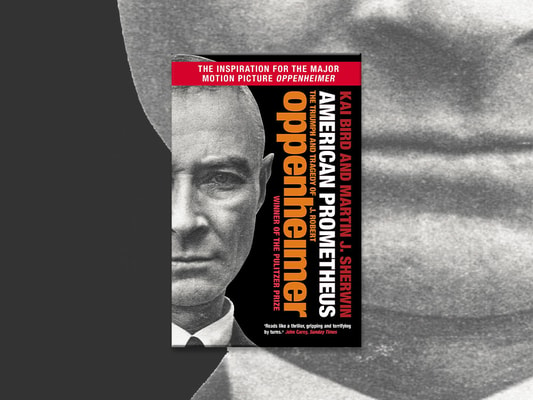A Story of Brilliance and Ethical Dilemmas: "American Prometheus" and the Life of Oppenheimer

American Prometheus: The Triumph and Tragedy of J. Robert Oppenheimer by Martin J. Sherwin is a portal into the life of a man who shaped history. As the intellectual force behind the Manhattan Project and the 'father of the atomic bomb,' Oppenheimer's story is a riveting blend of brilliance, ethical struggles, and personal turmoil.
Delve into the details of Oppenheimer's remarkable journey, from his early fascination with physics to his groundbreaking work on nuclear fission. Sherwin brilliantly captures the essence of Oppenheimer's complex personality - his charismatic intellect, his deep philosophical and moral questions about the power of the atom, and his eventual downfall during the Red Scare, a victim of the very political climate he helped create.
This Pulitzer Prize-winning book also sheds light on Oppenheimer's private life - his tumultuous relationships, his love for the arts, and his inner conflicts. Here are some notable facts from the book:
Cultural and Intellectual Versatility:
Oppenheimer was not only a scientific genius but also a connoisseur of literature and a polyglot. He was fluent in several languages and had a deep appreciation for poetry and philosophy. This wide-ranging intellectual curiosity significantly shaped his worldview and approach to scientific endeavors.
Complex Love Life:
Oppenheimer's personal life was complex and tumultuous. He had numerous affairs, including a significant relationship with Jean Tatlock, a fellow member of the Communist Party, which later contributed to his security troubles. His love life was not only a source of personal drama but also impacted his professional life and legacy.
Political Affiliations and Turmoil:
Oppenheimer had connections to the Communist Party in the 1930s, primarily through his friends and his brother Frank Oppenheimer. These associations later became a focal point of the security hearing that led to his downfall. The book delves into the intricacies of his political affiliations and the impact they had on his career, particularly during the era of McCarthyism.
Psychological Struggles:
Oppenheimer's psychological profile was complex. He once attempted to poison his tutor at Cambridge University, Patrick Blackett, which was a sign of his deep-seated emotional and psychological struggles. The book explores how these personal demons influenced his scientific work and relationships.
Ethical Dilemmas of the Atomic Bomb:
Perhaps the most striking aspect of Oppenheimer's life was his moral wrestling during the creation of the atomic bomb. After witnessing the destructive power of the bomb, he famously quoted the Bhagavad Gita, saying, 'Now I am become Death, the destroyer of worlds.' This quote epitomizes the deep ethical quandaries that haunted him following the bombings of Hiroshima and Nagasaki.
Christopher Nolan, captivated by this intricate and emotionally charged narrative, saw in American Prometheus the perfect groundwork for his film “Oppenheimer”. Nolan was deeply moved by the book's portrayal of the ethical dilemmas faced by those at the forefront of scientific discovery. In a time when ethical questions about science and technology, such as AI, are more relevant than ever, American Prometheus offers a poignant, thought-provoking exploration of one of the 20th century's most influential figures. It's a must-read for fans of Nolan's film, history enthusiasts, and anyone interested in the profound impact of science on humanity's destiny.
